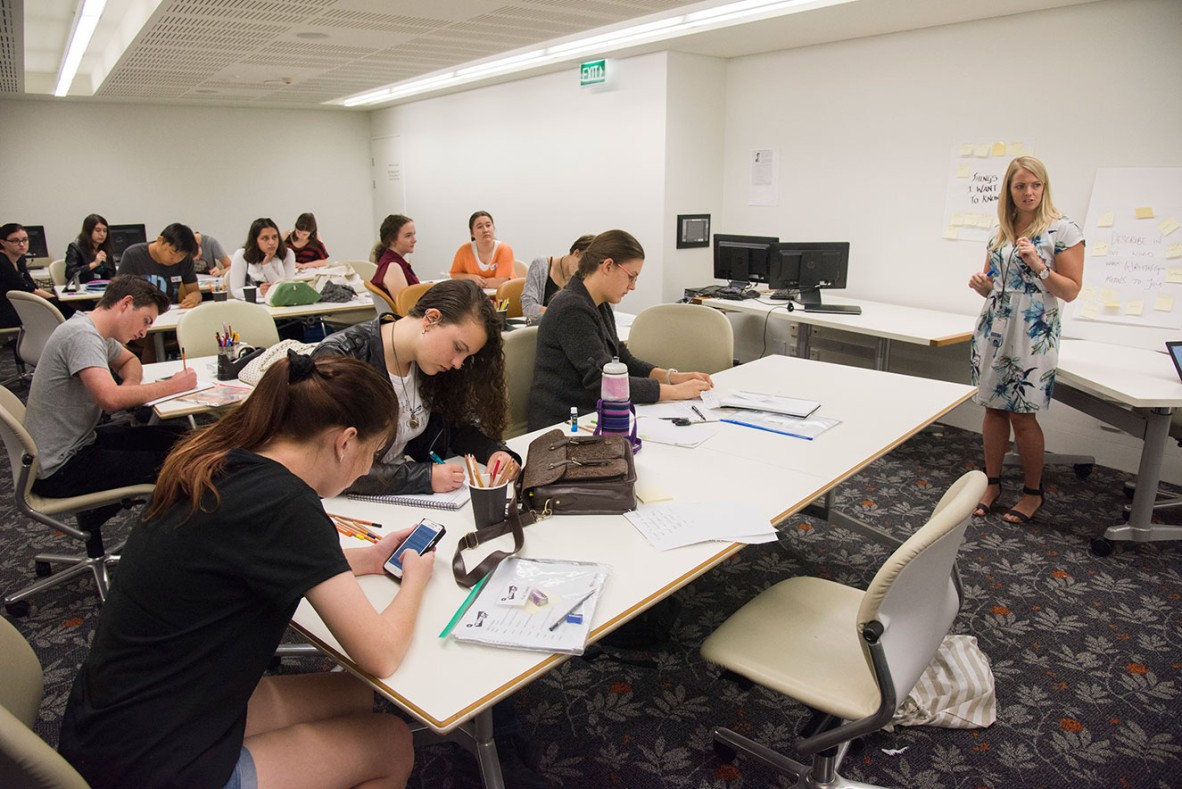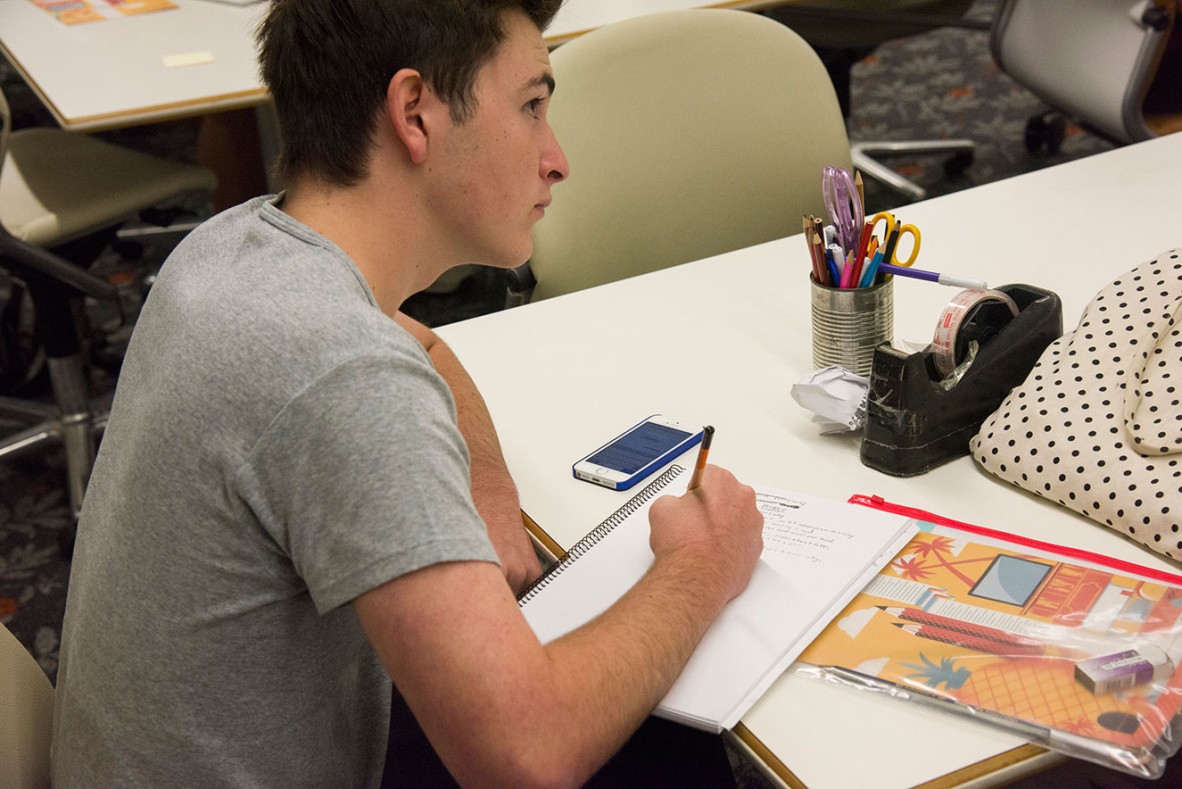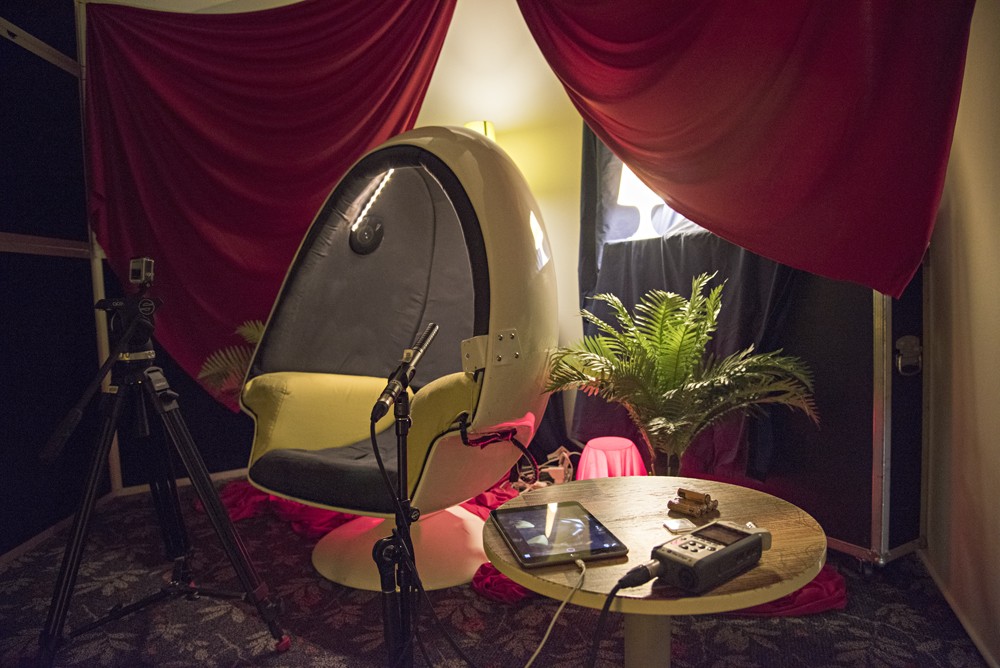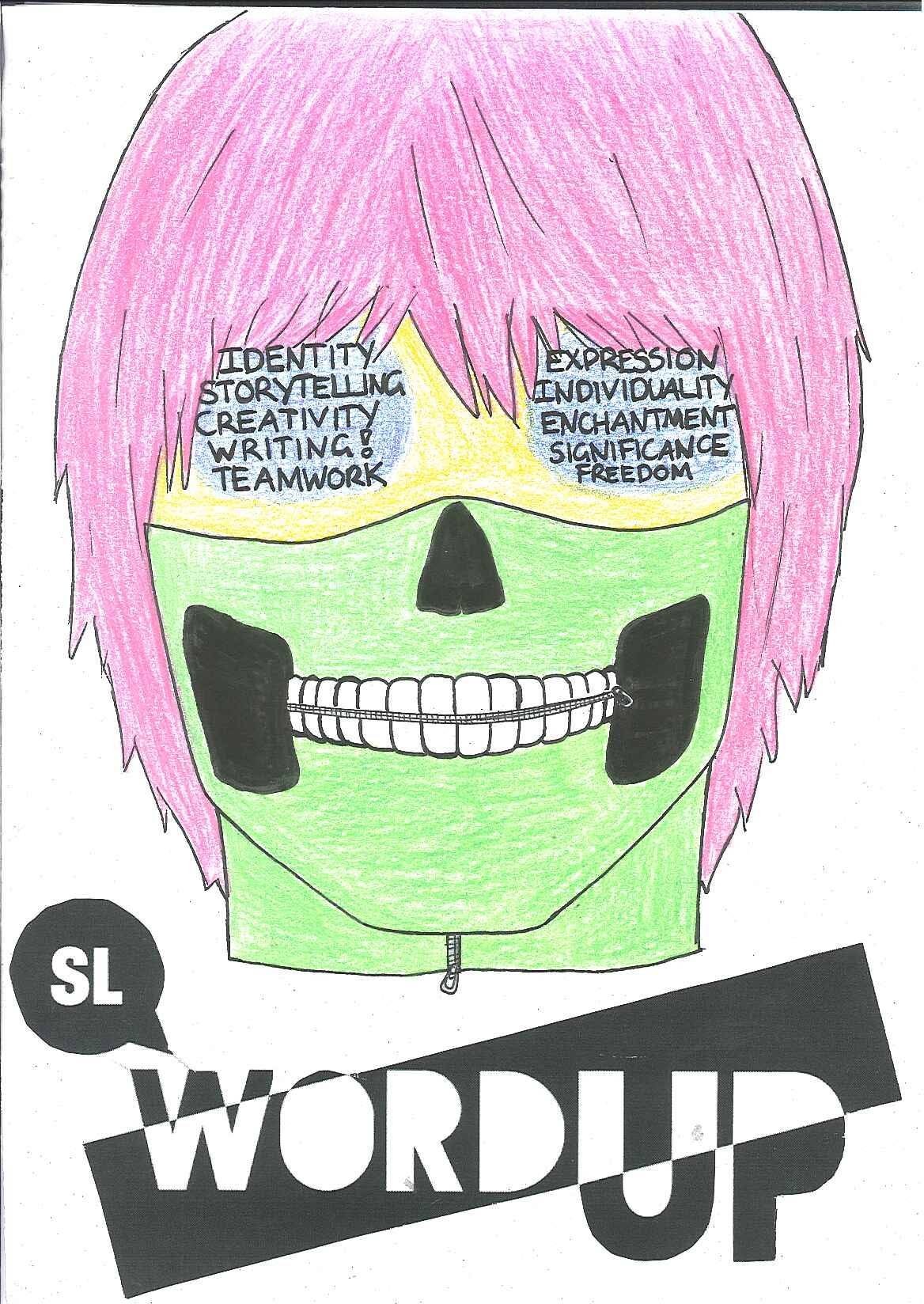Word Up invited aspiring young writers to come together at State Library of Queensland from the 5-7 April, 2016 for a three-day intensive writing workshop for young people aged 15-17. In 2016, the twenty-one Word Up participants that gathered were ambitious, bold, unique, and talented young people with a passion for creativity, writing and self-expression.
Across three days, these young writers embarked on an exploration of identity and community in a collaborative and transformative workshop setting where they were encouraged to take ownership of their learning and their outcomes.
Word Up participants brainstormed their own program theme using ideas sparking from the words: Identity, Creativity, Teamwork, Expression, Individuality, Significance and Freedom. With these keywords at the forefront of the workshop discussions, the group set out to avoid the existential question of who am I? and instead explored their role within the group and the community by posing the questions what do I bring, what do I have to contribute and what are my goals for my writing and for my future within my community?
Presented by State Library of Queensland, Word Up 2016 was facilitated by DIY ambassador and zine curator Jeremy Staples, along with the inaugural Queensland Premier’s Young Publishers and Writers Award winner and author Megan McGrath. Guest presenters were Walkley award winner Melissa Lucashenko, young author Steph Bowe and cross disciplinary artist J.M. Donellan.

Word Up participants working with facilitator Megan McGrath
Day 1 – What are my goals?
As the morning progressed, the young writers participated in a series of craft-building exercises which aimed to advance their understanding of the fundamentals of narrative writing including character, plot and structure. As a group, they workshopped a selection of imaginative characters, spring-boarding from artistic representations of self-portraits and collectively plotted the framework of a short story using their characters.
Author, musician, poet, radio DJ and teacher J.M. Donellan introduced the group to poetics and the power of word-choice and delivery in his session on spoken word. He noted, ‘Writing poetry, or making art, is just like learning to cook or learning a sport: we all start out terrible, but we improve through process and practice’.
After a series of exercises, the young writers had created a poem to share and perform for the group in a poetry slam scenario. Josh briefed the participants on slam-etiquette and on how to give useful critical feedback, offering encouragement and a pathway for improvement.
One of Josh’s key messages was that bad art is the gateway to good art which provided a framework for a safe sharing environment where work was neither good nor bad, instead it was valued for its creation and refinement. With this in mind, the young writers came at the exercise with high-energy and after reading and sharing their work to the group, the material they went on to develop and deliver was no longer overworked or self-censored, instead honest new creations were shared as the participants identities as writers and young people began to surface.
By the afternoon on Day 1, the participants had tackled some of their biggest fears by sharing their work to a group of peers, they’d furthered their knowledge of the publishing industry, developed an increased understanding of story building, narrative tools and pathways to improve their writing. They had also explored the complexities of word choice, poetics and expression.
It was at this time the young writers decided to take on a group project to create a zine within the three days at Word Up. This shared goal to produce a literary product and the expectation that each participant would contribute with maturity, ownership and collaboration until completion solidified the cohort.

Word Up participant James Masel
Day 2 – I am a knowledge centre
The first guest author for the day was Melissa Lukashenko, an award-winning Aboriginal novelist who lives between Brisbane and the Bundjalung nation. Melissa’s most recent novel, Mullumbimby, was awarded the 2013 Deloitte Queensland Literary Award for Fiction, won the 2014 Victorian Premiers Prize for Indigenous Writing, and was longlisted for both the Stella and Miles Franklin awards. Mullumbimby was also longlisted for the Dublin IMPAC Literary Prize 2015. Melissa led the group through an intensive workshop centred on voice and identity. Melissa’s experience and talent capturing the uniqueness and strength of Australian characters coerced the young writers to find and nurture their inner narrative voice and use this to drive their stories.
In the afternoon, Word Up visited the Queensland Writers Centre on Level 2 at the State Library of Queensland. QWC’s Public Programs manager Aimée Lindorff highlighted the myriad of pathways and opportunities that exist in Queensland and Australia for writers aged 15-25, including SLQ’s own Young Writers Award, Express Media, and the This Is Not Art festival.
The participants stayed as guests of QWC for a blogging workshop with special guest, twenty-two year old YA author Steph Bowe. At the outset of the workshop, Steph asked the young writers to identify what kind of writing they would like to do in the future. Journalism was a favourite, along with fiction writing, and writing to advance the conversation on social justice issues. No participants in the group identified themselves as potential bloggers.
As Steph presented the session and shared her story of how she came to be a published author at 17 thanks to her blog, she highlighted that blogging is about making connections and networking with readers and peers. Her key messages noted that blogging should be entertaining, interesting and share information. Most of all, blogging should be fun. She went on to say that while publishers like authors who have a platform, you don’t need to have a platform to get published.
At the conclusion of the workshop, Steph activated the group by emphasising their uniqueness and potential for sharing their stories and ideas with their peers through blogging. She said, “As a writer, you are a knowledge centre”. She then asked how many of the participants would consider blogging in the future, not surprisingly, a number of participants raised their hands.

Day 3 - Words in print have authority
The focus of Day 3 was to advance and implement the skills gained so far in Word Up. The young writers were on deadline for their zine project, which saw the first part of the day dedicated to reading their pieces for submission. The room hummed with energy as the writers shared and consulted one another on their finishing touches.
In the production room break-out space, the authors tapped out their work on typewriters and completed the design elements. Smaller groups emerged to take on additional production duties. A cover was designed to represent the writers’ masks coming down to reveal their real identities. With the clock ticking, one by one they delivered their finished pages to the editor’s in-tray and submissions for the zine came to a close.
Steph Bowe returned to take the writers through a workshop on character diversity. She asked each of the writers to think about their own traits and experiences, then of the diverseness of the people around them, and of those in their community. Through this, the idea of diversity became a real and tangible thing that each of the participants could identify with and use to fuel their work. Instead of diversity being a concept of ‘otherness’ it became real and connected to ‘self’.
In the afternoon, as the photocopier churned out the Word Up zine, Steph offered the writers a crash course in editing. This workshop wasn’t only about the red pen, it was about improvement and identifying ways to be better writers and readers. On negative self-talk and personal doubt, Steph said, “You don’t get better at writing by saying, I’m a terrible writer: you get better at writing by writing… and by editing.”
In this session, the group worked individually to edit their own work, then had their work edited by a peer. Steph showcased the editorial layers including structural, copy editing and proof reading. She led the group through how to give an artful edit on another’s work, a valuable lesson for writers striving for professional careers as writers, or in publishing.

Zine Cover
By the close of this session, the zine was, literally, hot off the press. The Word Up participants joined State Library staff, the facilitators and author Steph Bowe in the Talking Circle for their first look and launch of their zine. As each Word Up participant was awarded a participation certificate and copy of the zine, silence spread around the Talking Circle as each of the writers saw their words in print for the first time.
Comments
Your email address will not be published.
We welcome relevant, respectful comments.